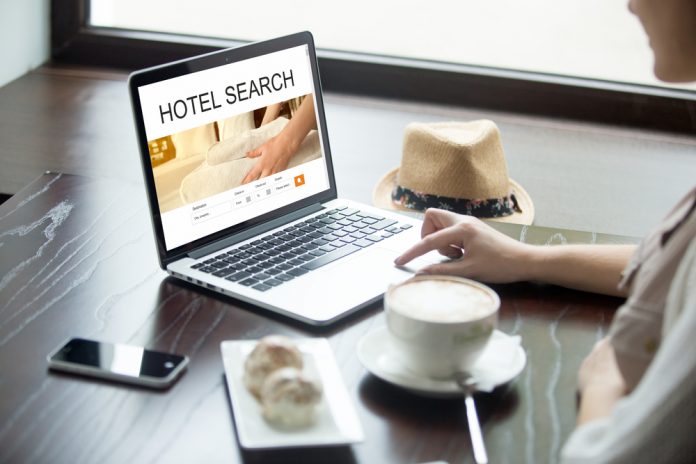Using the internet to book holidays and business trips is nothing new, but the ways in which we go online to access such breaks are changing all the time.Where once we were confined to a desktop PC in the corner of the living room that used dial-up and had a family ban on usage before 7pm due to the cost, we can now go online wherever we like, whenever we like.This boom in mobile connectivity technology has resulted in some big changes to the travel industry – and the abilities of hotel owners, tour operators and other stakeholders to reach their customers.
According to new statistics from Hitwise, 60 per cent of all travel-related searches now begin from mobile devices, although the figure may climb as high as 88 per cent for certain keywords. Some 68 per cent of searches for the phrase ‘flights from’ are mobile-led, with 80 per cent of searches for ‘five star’ and ‘luxury’ being made on such devices. This is something that continues once people are actually on holiday, suggesting many people are now abandoning the traditional package tour and going for a more ad hoc approach when they reach their destination. Indeed, 86 per cent of ‘places to eat’ searches come from smartphones, as do 76 per cent for ‘things to do’ and 88 per cent for ‘near me’.
Managing director at Hitwise Nigel Wilson said the news means brands and advertisers must carefully consider the vital role mobile now plays in the travel sector.”Marketers in this space need to understand how their audiences are utilising mobile to access information so that they can be everywhere the consumer wants, with the right experience desired,” he added. Essentials for hotels to consider If you’re the owner of a modern hotel, then the chances are you already have a hotel booking engine in place. These are the easiest way to process reservations as they are automatic and also convenient, since guests can make use of them at any time of day.But what are the must-have features for a good booking engine, especially taking the new data on mobile travel trends into account? Here are a few essentials that yours should have – and that you might want to consider upgrading to if it doesn’t.
1. Optimisaton for mobile We put this one first after what we’ve already been discussing as it’s clearly becoming increasingly important to consumers. No longer is it enough to simply have a website and direct people to it whatever device they’re on; people expect a tailored experience and pages that are definitely going to work as they should.Integrate your booking system into all of your online channels and make sure that would-be guests can easily book your rooms or services from mobiles, tablets and desktops.
2. Cross-channel solutions If you’re on top of your marketing, then the chances are that you’ve been using platforms such as Facebook and other social media portals to sell your property to travellers. However, why not go the whole hog and implement a booking engine that integrates a form for all of your different channels? That way, you can capitalise on bookings that might crop up on a whim while people browse their news feeds on their morning commute or at night.
3. Proper branding No matter where your guests are reaching your booking engine from, they need to know that it is part of your hotel’s website and that means ensuring that it is branded appropriately. Always use your own colour scheme rather than utilising a stock design and put your hotel’s name prominently on each page. If you don’t, guests might feel nervous about making a booking in case they have been directed to an unsecure or fraudulent site – consistency is key at this final stage.
4. Universal appeal Having the ability to book hotels online means people could be almost anywhere in the world while they look at your page, so you need to cater for them if you are to avoid losing out on easy revenue. Your booking engine should incorporate a translation tool and the ability to convert currencies so that virtually everyone who visits is able to understand what they are seeing and apply it to their situation.
5. Collection and analysis of data To successfully market your hotel, you need to be regularly collecting information about your guests and the people who visit your website, even if they do not complete the booking process. This is something that online booking engines should easily facilitate, so take a look at yours and see if it is allowing this function.
Of course, you don’t want to be bombarding people with questions, but a little data goes a long way when it is compiled into reports at the end of the month or quarter – it could allow you to spot where things aren’t quite working and to make changes.With technology and the way we go online ever-changing, hotels must ensure their technology is keeping pace.







